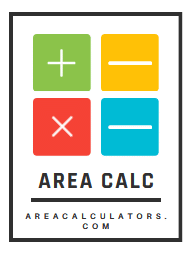Ever wondered how much of the power going into your speaker actually becomes sound? It’s not 100%. In fact, most of it turns into heat.
The Speaker Efficiency Calculator shows how effectively your speaker converts electrical power into acoustic power. If you care about performance, energy use, or sound quality — this tool gives you clear answers.
Whether you’re designing a sound system, testing speakers, or just curious, this calculator helps you measure true speaker performance in seconds.
What Is a Speaker Efficiency Calculator and Why It Matters
A Speaker Efficiency Calculator tells you the percentage of electrical power that is turned into useful sound energy.
This is critical in:
-
🔊 Home or professional audio setups
-
🎙️ Studio monitoring
-
🚗 Car speaker systems
-
🔧 Audio engineering and product testing
-
🧑🔬 Sound research and education
A speaker that wastes too much power might run hotter, distort sound, or drain energy quickly. Efficiency helps you understand how much value you’re getting from your gear.
Formula and Variables
Speaker Efficiency (%) = (Acoustic Power Output / Electrical Power Input) × 100
Variable Table
| Variable | Explanation |
|---|---|
| Acoustic Power Output | The actual sound energy produced (watts) |
| Electrical Power Input | The electrical power supplied to the speaker (watts) |
Example:
If your speaker takes in 100 watts of electricity but produces only 1 watt of sound:
Efficiency = (1 / 100) × 100 = 1%
That means only 1% of the energy goes into sound — and the rest becomes heat.
How to Use the Speaker Efficiency Calculator
-
Measure or estimate acoustic power output — usually using a sound level meter and formulas
-
Enter electrical power input — the wattage your amp sends to the speaker
-
Click calculate — the tool gives you the efficiency percentage
This helps you compare different speakers and make smarter audio choices.
Real-World Uses of Speaker Efficiency Calculations
-
🏠 Home theaters – compare speaker performance and energy draw
-
🎤 Live event setups – choose high-efficiency gear to save power
-
🚙 Car audio – assess sound per watt for battery-friendly systems
-
🏢 Professional studios – test speakers for clarity and balance
-
📚 Physics or electronics labs – teaching audio energy principles
It’s more than numbers — it’s about understanding your sound system’s real capability.
Tips to Improve Speaker Efficiency
✅ Use speakers rated with higher sensitivity (dB per watt)
✅ Choose amplifiers matched to speaker specs
✅ Avoid cranking volume on inefficient systems
✅ Use acoustic treatment to reduce energy loss in the room
✅ Keep cables and connections in top shape to avoid loss
Remember: better efficiency often means less heat, more sound, and longer life.
Common Mistakes to Avoid
❌ Assuming higher power always means louder sound
❌ Ignoring speaker sensitivity ratings
❌ Using mismatched amps and speakers
❌ Confusing loudness with efficiency
❌ Skipping measurement of acoustic output (estimation ≠ accuracy)
Efficiency helps you choose smarter — not just bigger.
FAQs:
1. What is considered a good speaker efficiency?
Most speakers have efficiency between 0.5% to 2%. Horn-loaded or professional speakers may reach up to 10% or more.
2. How is speaker efficiency different from sensitivity (dB)?
Efficiency is a ratio of power. Sensitivity shows how loud a speaker is at 1 watt/1 meter — both are related but not the same.
3. Can I use this calculator for car speakers?
Yes! Just input the correct power values and get your result.
4. Why is speaker efficiency so low?
Converting electricity to sound is tough. Most energy becomes heat — not sound.
5. Does room acoustics affect efficiency?
They don’t change the actual efficiency, but they can affect perceived loudness and clarity.
6. Is higher efficiency always better?
Usually yes, especially if you’re concerned about power use. But clarity, range, and sound balance also matter.
Conclusion:
The Speaker Efficiency Calculator helps you see what your sound system is really doing.
It’s not just about volume. It’s about understanding how much energy becomes performance — and how much is lost. Whether you’re buying new speakers, testing a setup, or optimizing your sound, this tool gives you the clarity you need.
🔊 Measure, compare, and fine-tune — for sound that works smarter, not harder.
